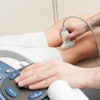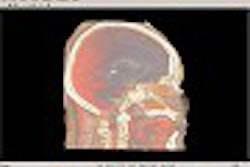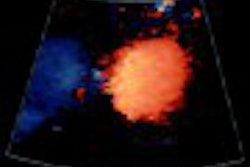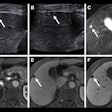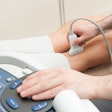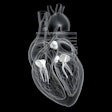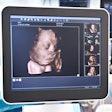(Ultrasound Review) The purpose of research by obstetricians at the University of Rochester School of Medicine in New York was to determine the usefulness of ultrasound in detecting placental abruption based on specificity and sensitivity. They also correlated ultrasound findings with patient management and pregnancy outcome.
Although placental abruption is uncommon (1%), this problem is associated with increased risk of premature delivery and fetal death, according to an article published in the Journal of Ultrasound in Medicine.
One hundred and forty-nine consecutive patients with vaginal bleeding, abdominal pain or uterine hypertonicity that were suspected of having an abruptio placenta were studied. All had ultrasound scans performed at or after 24 weeks’ gestational age. An ATL Ultramark 9 (Philips Medical Systems North America, Bothell, WA) was used for all scans during a period from 1994 to 1996.
"A positive sonographic finding was defined as showing a subchorionic or retroplacental hematoma," they said. According to the authors "approximately 50% of women with clinical signs suggesting abruption but with negative sonographic findings have evidence of abruption at delivery." Blood that does not collect under the chorion but communicates directly to and drains through the cervix may not be evident on ultrasound.
Only 11% of patients displayed ultrasound findings consistent with placental abruption, while 21% showed an abruption at delivery. The specificity increased in indirect relation to the interval between ultrasound examination and delivery. They reported, "positive sonographic findings were univariately associated with 2- to 3-fold greater subsequent tocolysis, betamethasone use, duration of hospitalization, follow-up sonograms, pre-term delivery, low birth weight, and neonatal intensive care unit admission."
The authors concluded that ultrasound was not a sensitive diagnostic tool for detecting placental abruption, but when ultrasound findings were positive the positive predictive value was high. They found that when ultrasound was positive for placental abruption the patient was managed more aggressively and neonatal outcome worsened.
Clinical utility of sonography in the diagnosis and treatment of placental abruptionGlantz, C and Purnell, L
University of Rochester School of Medicine, Rochester, NY
J Ultrasound Med 2002 August; 21:837-840
By Ultrasound Review
September 10, 2002
Copyright © 2002 AuntMinnie.com

